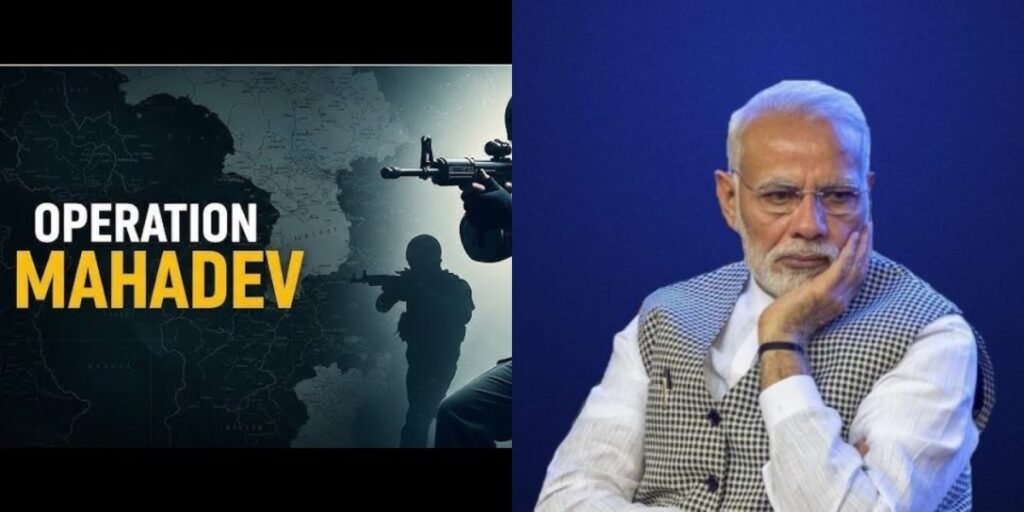WEBDESK: The Indian government has launched “Operation Mahadev”, nearly 100 days after the Pahalgam incident raising serious questions about its timing and purpose.
Home Minister Amit Shah announced in Lok Sabha that three alleged militants involved in the Pahalgam incident had been killed. However, opposition leaders called the operation a diversion tactic to shift attention away from the real facts of the attack.
They criticised the government for giving the mission a religious name, saying it was a failed attempt to stir public emotions. Some MPs claimed the encounter was fake, meant to reduce political pressure on Indian Prime Minister Narendra Modi’s administration.
Meanwhile, PM Modi busy with foreign visits has not met the families affected by the Pahalgam tragedy.
Despite major public concern, the government gave vague statements through three key ministries. Critics asked: If intelligence had prior warning, how did the attackers reach Pahalgam?
Even with satellite surveillance, security forces failed to track the movement of the alleged militants. Their ability to enter the sensitive tourist area and launch an attack raised serious concerns about intelligence failures.
The government’s slow response after the attack has also drawn criticism. Families of the victims are still waiting for justice, while the Modi government focuses on pushing a new narrative.
Analysts say the pattern is familiar. After Operation Sindoor, the Modi government is now using Operation Mahadev to continue promoting its Hindutva-driven agenda.
Critics warn that the so called war on terrorism is being used more as a political slogan than real security policy.
Read more: Trump lashes out: calls India, Russia “dead economies,” slams India’s high tariffs





